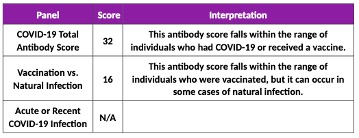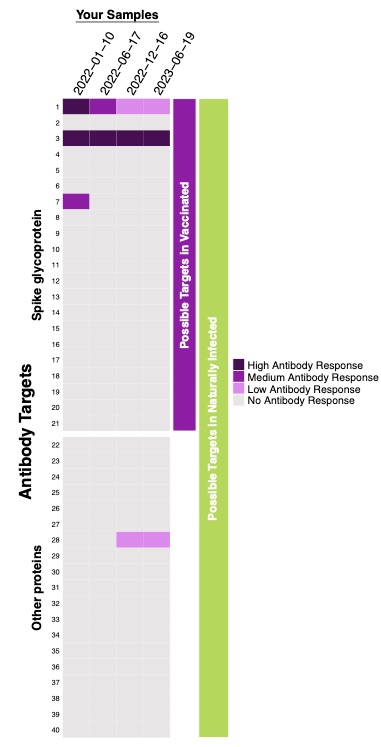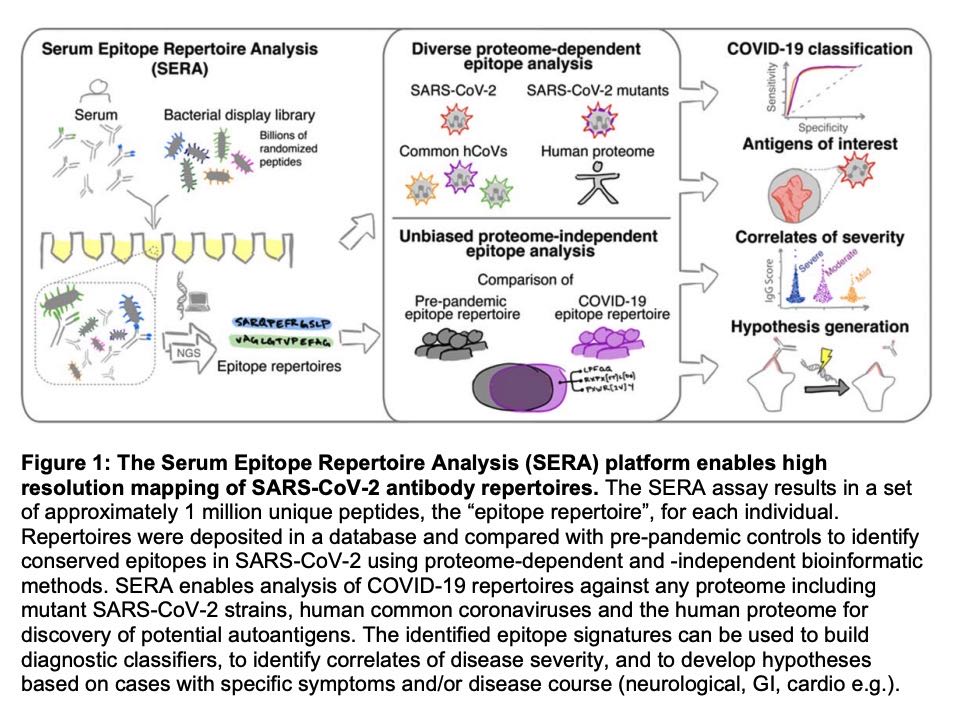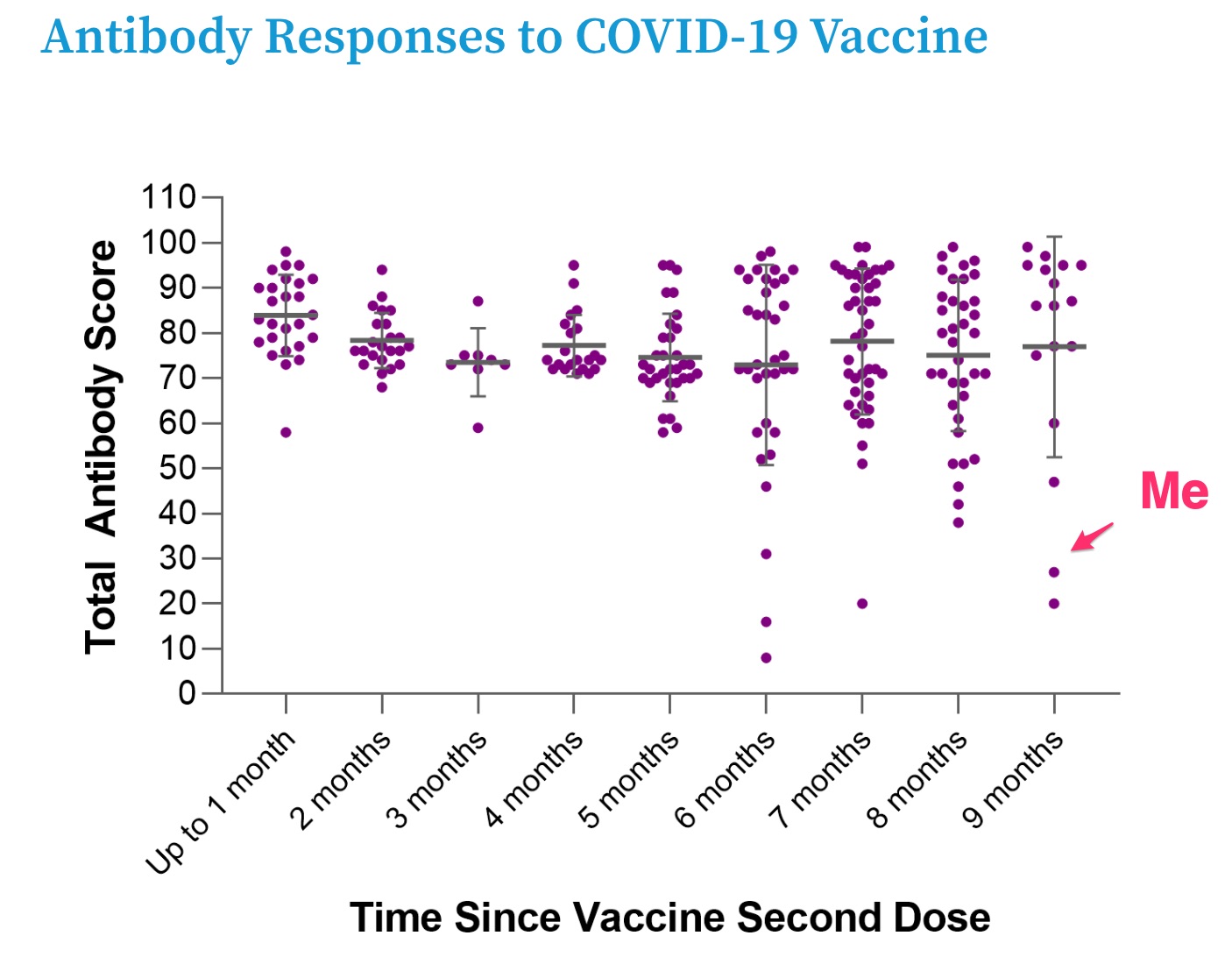Testing my COVID-19 Antibodies With Serimmune
For a much more readable discussion of my Serimmune experience, see my article in NEO.LIFE: This Company Uses Machine Learning to Track Your Antibodies
I volunteered for a fascinating COVID-19 study sponsored by Serimmune, a company in Southern California that is working on some low-cost antibody tests. The study is free, and every six months they’ll send you a home blood-testing kit and a few weeks later give you the results. I’ve now been a participant for a year and recently received my third sample result.
As of August 2023, I’ve not knowingly been infected with SARS-CoV-2.
Serimmune appears to confirm this (collected mid-June 2023):

The results of my third test show I have a few places of antibody response:

Does this make me more susceptible to a real-life exposure? Who knows.
How it works
Their key preprint (Nov 2020)

My layman’s explanation of how it works:
They somehow break a blood sample into a million unique molecules they call the “epitope repertoire” for an individual. These are a million possible locations where antibodies can bond, so presumably this gives an overview of the sorts of antibodies that might actually work in this person.
That’s an imperfect measure. Just because my body contains molecules that can bind to an antibody doesn’t mean those antibodies are present. But it’s probably close enough. Given the infinite variety of molecules that are possible in this world, it’s unlikely that these particular ones would be in your body unless an antibody had caused them to be there in the first place. In other words, your epitope repertoire is a good first approximation for all the zillions of antibodies your system has come across.
But a zillion epitopes is too many to track. Next, the Serimmune team compare your million epitopes to the million epitopes they grabbed from other people with known diseases and exposures. Their software, they claim, can then score how similar your sample is to those of people with various other conditions. This score lets them classify you into various buckets that represent which diseases you have and their severity (again, compared to samples of people who have been clinically evaluated)
The gold standard for antibody measurement is a complex process called ELISA (enzyme-linked immunosorbent assay) that involves smudging a bit of sample onto a specially-prepared fabric containing a protein known to be associated with the disease. The proteins are attached to small bits of metal (usually gold) whose reddish color grows visible when it comes in contact with matching proteins in the sample.
Serimmune claims their test works very well compared to ELISA. It has a high “specificity” (true negative): when they say a sample doesn’t have COVID, they’re almost always right. In fact, when they applied their test to samples taken before the pandemic, every single time they correctly ruled out COVID.
Population Comparison
Here’s me compared to everyone else in the Serimmune database

Raw Reports
You can see my full reports here:
Jun 2023: Serimmune SARS-CoV-2 Antibody Test Results
Dec 2022: SARS-CoV-2 Antibody Test Results
and more, with examples from other people, at the OpenHumans Wiki